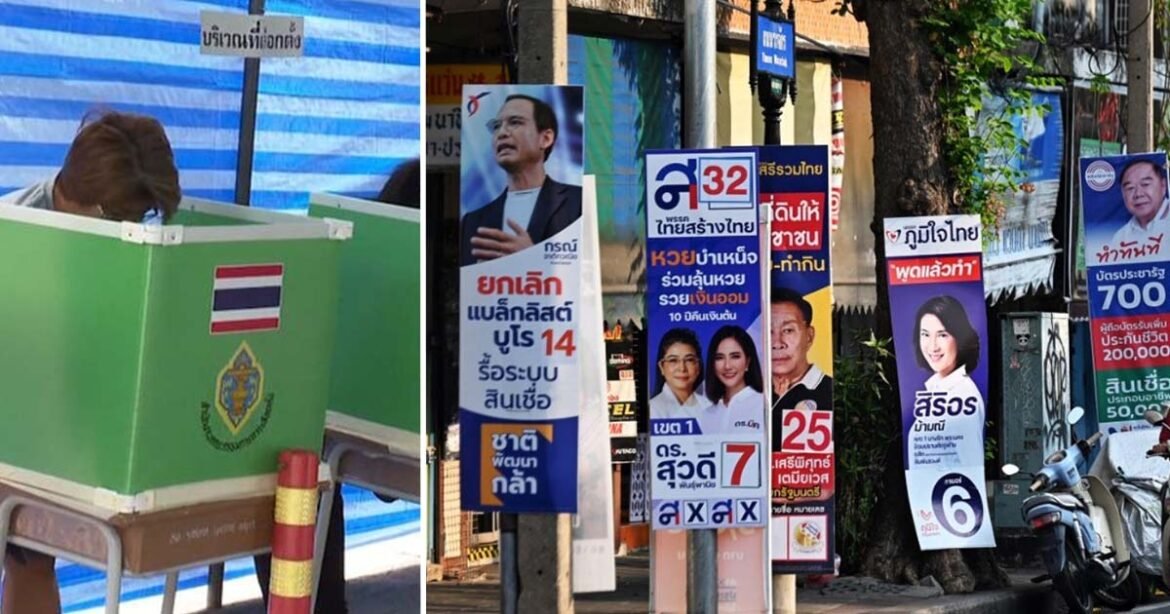Thai citizens will cast their ballots on Sunday in an election that may mark the end of eight years of military rule and the continuous cycle of elections and protests that has hindered the country’s political progress.
500 members of Thailand’s House of Representatives will be chosen at the polls on Sunday. The polling spots for the May 14 election for the lower house of parliament open at 8:00 am (01:00 GMT). An initial result is expected the same evening. Due to Thailand’s hybrid voting system, which includes both direct voting and a party list based on voters’ party preferences, the formation of the next government is likely to be uncertain as parties compete to form coalitions. The final choice of prime minister must also have the support of the 250 military-appointed members of the upper chamber.
YOU CAN ALSO READ: US FOREIGN DEPT REFUSES TO INTERFERE IN BANGLADESH’S ‘INTERNAL AFFAIR’
Thais have never been governed by an authoritarian regime for as long as the current eight-year term. Opinion polls indicate that a significant portion of the electorate now favors opposition parties that promise a return to democracy.
Listed below are the main parties and their leaders who are competing for seats and the opportunity to form a government-
Prayuth Chan-ocha from United Thai Nation Party-UTN (Ruam Thai Sang Chart)
The recently founded party of current Prime Minister Prayuth Chan-ocha, UTN’s motto is “have done, doing, and will keep doing” – a reference to the retired general’s policies over the past eight years.
As army chief, Prayuth seized power from a civilian government in 2014 and led a junta until he was elected as civilian prime minister with the military-backed Palang Pracharat party in the most recent election, after establishing a coalition with smaller parties in 2019. He left Palang Pracharat earlier this year and is now running for the similarly conservative Ruam Thai Sang Chart (United Thai Nation Party), which was founded last August.
UTN espouses conservative values and pledges to defend the monarchy; it targets the urban middle class and southern voters.

Its campaign promises include monthly pensions for the elderly and reduced electricity rates. If re-elected as prime minister, Prayuth could only serve for two years due to the eight-year limit on premierships.
Prawit Wongsuwan from Palang Pracharat Party
Since Prayuth switched parties, Palang Pracharat’s candidate for prime minister is Prawit Wongsuwan, Prayuth’s former military mentor. Wongsuwan, 77, is a deputy premier from the same armed forces school class as Prayuth and was a key player in Prayuth’s junta. Palang Pracharat is the largest party in the governing coalition and the junta’s election vehicle in 2019. It has performed inadequately in polls, ranking seventh and eighth in the previous week.
In a protracted conflict in which he has played a significant role, Prawit has exerted considerable effort to portray himself as a centrist who can bridge the gap between the conservative and progressive camps. “overcoming conflict” is the slogan of the party.
Prawit, also known as Big Pom, has stated that his policies will be designed to benefit the public and will include measures to combat destitution and drought in Thailand, which is experiencing record-high temperatures. Additionally, the party pledges generous handouts to the elderly and the needy, particularly farmers.
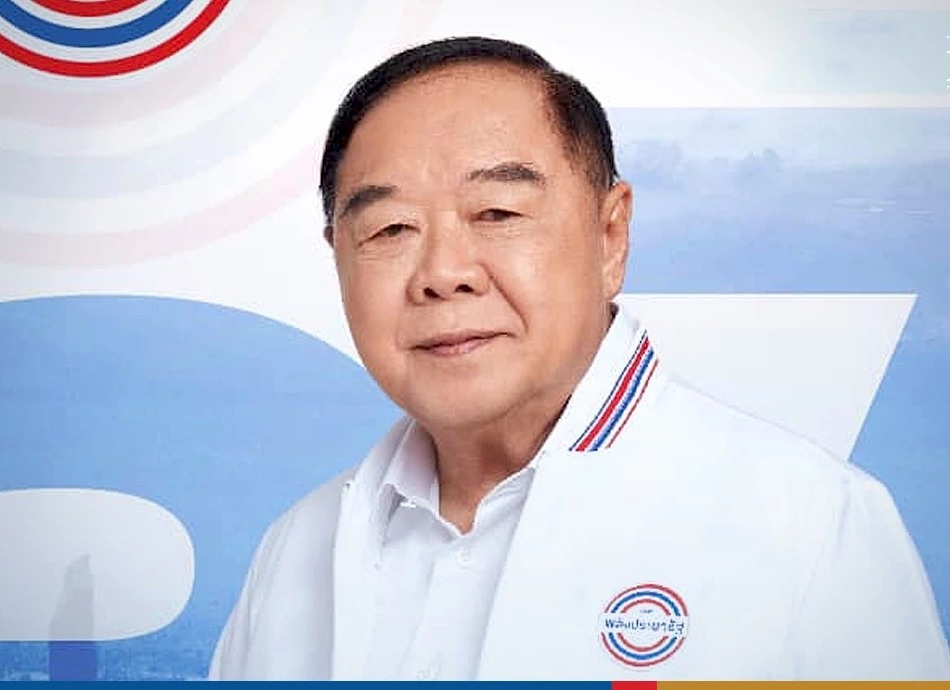
Paetongtarn Shinawatra and Srettha Thavisin from Pheu Thai Party (For Thais)
Paetongtarn Shinawatra: The youngest daughter of former prime minister and telecoms magnate Thaksin Shinawatra, Paetongtarn aspires to become the third Shinawatra dynasty member to wield Thailand’s highest office. Polls indicate that the Pheu Thai party, backed by the billionaire Shinawatra family, will gain the most seats, as it has in every election since 2001, including twice by majorities.
Paetongtarn has stated that she is against coups – “especially the last two” – amid rumors that she may be prepared to make a deal with the military-backed parties in order to form a government. Both her father and her aunt were overthrown by military coups.

Srettha Thavisin: Before entering politics, Srettha Thavisin, another of Pheu Thau’s prime ministerial candidates, was the CEO of luxury property developer Sansiri.
The 60-year-old is well-liked by the business community and may be more palatable to electors wary of the Shinawatra family’s dominance.
The party won the most seats in the 2019 elections, and its combination of progressive and populist policies makes it a formidable opponent in this election cycle. Pheu Thai receives support from the rural and urban working class, notably in the north and northeast, a base it has cultivated over the past two decades with village loans, affordable healthcare, free tablet computers for students, and rice price support. Among the policy promises are a doubling of the daily minimum wage, an expansion of healthcare coverage, and the construction of an infrastructure to safeguard farmers from floods and droughts.
Anutin Charnvirakul from Bhumjaithai Party (Proud To Be Thai)
The current minister of health, Anutin Charnvirakul, heads the Bhumjaithai party. Through its stronghold in the lower northeast, Bhumjaithai has consistently won enough parliamentary seats to play a crucial role in determining who forms a government, providing it negotiating power for cabinet and committee positions.
This time around, election promises include solar farm subsidies, emergency loans for people aged 20 and older, and a life insurance fund for those aged 60 and older.
The party is best known for decriminalizing cannabis, but critics argue that this was done too rapidly and without proper regulations.
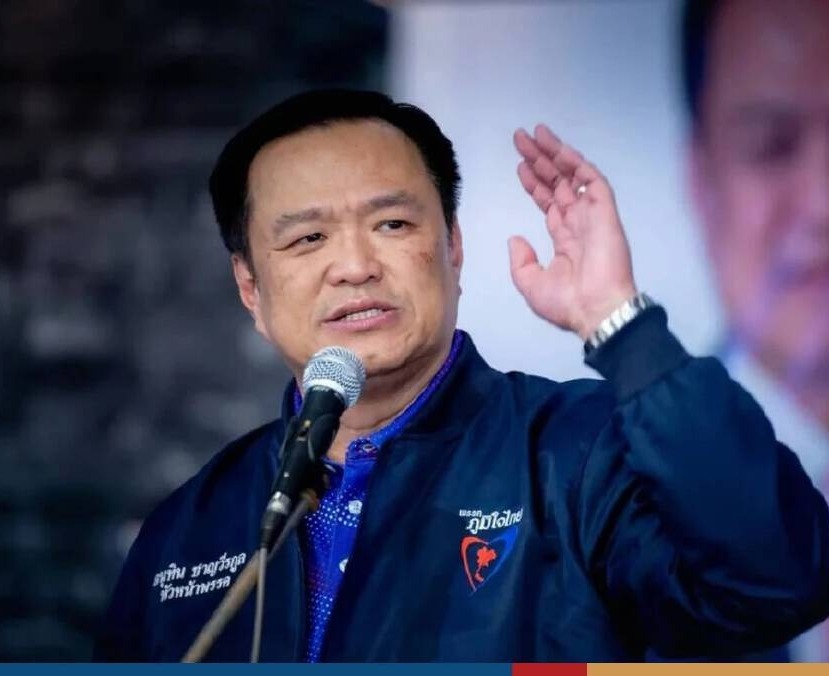
Bhumjaithai is in favor of medical marijuana and has vowed to fight for stricter regulation. “We say it and we do it” is the party’s slogan.
Pita Limjaroenrat from Move Forward Party (Kao Klai)
Pita Limjaroenrat, a 42-year-old Harvard graduate, is the Move Forward party’s prime ministerial candidate. The progressive opposition Move Forward is well-known for its large rallies and innovative social media campaigning among youth voters.
The progressive party is the most recent incarnation of Future Forward, which under the charismatic leadership of Thanathorn Juangroongruangkit surged to third place in the 2019 election. In 2020, the party was compelled to dissolve, and Thanathorn was disqualified.
The goals of Move Forward include decentralizing power, electing provincial governors, dismantling monopolies, and reducing the military’s influence in politics. It also seeks to terminate army conscription and amend a law that imposes 15-year sentences for insulting the royal family.
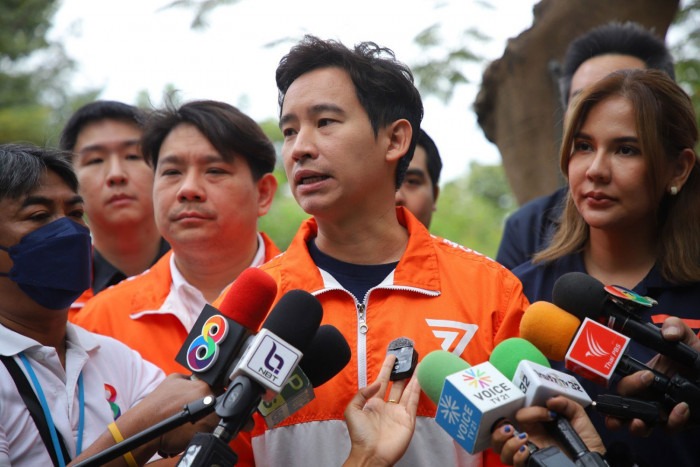
According to opinion polls, the party is in second place. “Choose Kao Klai, change Thailand together” is the tagline of the party.
Jurin Laksanawisit from The Democrat Party
The Democrat party’s prime ministerial candidate is Jurin Laksanawisit. The Democrat party is the oldest political party in the nation, but its popularity has declined as it has shifted to the right.
It was wiped out in its traditional strongholds of Bangkok and the south in 2019. This time, it has to face voters because of sexual assault accusations made against a party official during the race for Bangkok governor last year. Its base of support remains in the south, and it has struggled to regain support in Bangkok.
Leader Jurin, who is currently minister of commerce, seeks to revitalize the party and regain lost seats. This may prove challenging, according to recent polls. The party’s platform calls for the establishment of community institutions nationwide, free education through the university level, a mandatory savings policy, and an increase in the retirement age from 60 to 65.
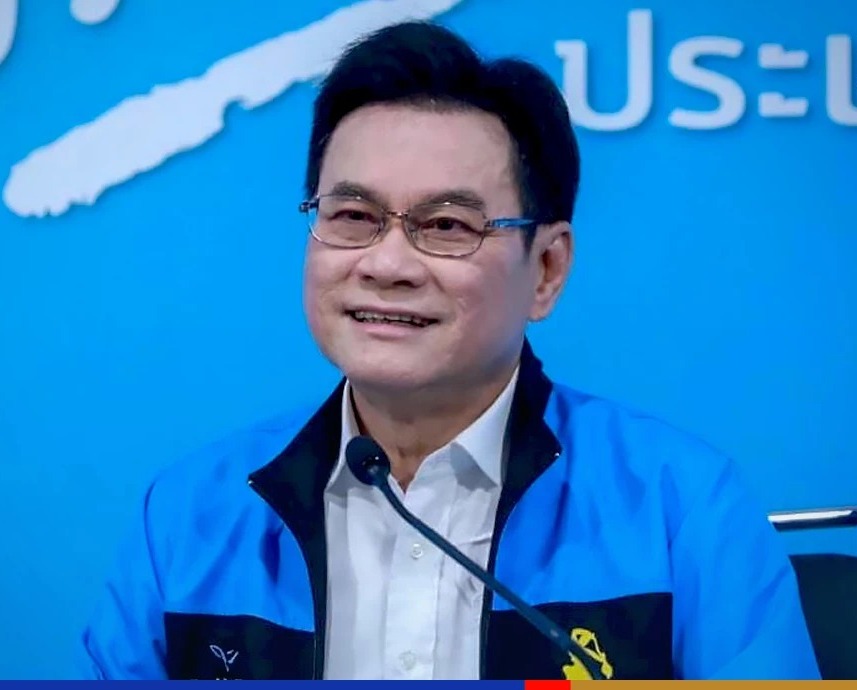
Impact of the election results
Depending on which party gains the majority, the monarchy’s future could be subject to discussion. The political parties are contemplating whether a law that criminalizes monarchy criticism should be amended or expanded.
If the parties favored by the military lose, the future of the monarchy may appear less secure. The military has always been viewed as the institution’s protectors, and without it at the helm of the government, the country’s conservatives may become anxious.
If a party from the opposition were to win the election, it would perhaps indicate that Thailand might bring back its formerly robust democracy.
However, if history is any indication, the military is unlikely to give up power without a fight. It is currently difficult to predict whether the country will finally break the cycle of coups and short-lived civilian governments.

